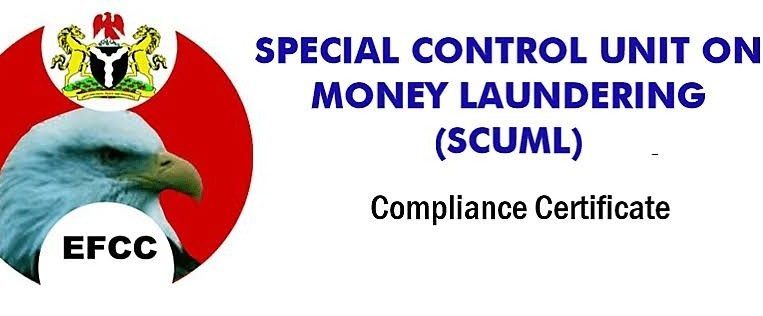The Special Control Unit on Money Laundering SCUML, and the Economic and Financial Crimes Commission EFCC have advised all practitioners in the real estate sector to imbibe by its regulations as the bodies work towards curbing money laundry and terrorism financing through the real estate sector.
This was made known by a special representative from SCUML on Thursday in Abuja at the opening ceremony of the training on emerging trends in real estate development in Nigeria organised by the real estate developers association of Nigeria (REDAN).
The Representative said the real estate sector is the most vulnerable in the Nigerian economy.
According to the National Bureau of statistics in their GDP report that was released in the second quarter of 2019, the real estate sector is said to be contributing about 6.44% to Nigeria’s GDP.
This according to SCUML is why the sector is very sensitive and must be rid of all illegal and criminal practises.
‘’For us at SCUML, we want to ensure that every operator in this sector is registered with us. It is when you register with us that we can have that effective supervision over you. So for you to also register with REDAN, you must also register with us.
‘’There is very little scrutiny that goes on in the sector and that is why it is adjudged to be most vulnerable to money laundering activities.
‘’There are international measures like financial action task force – the global body that sets standards to combat this issue. Every country is expected to domesticate those standards into their national laws, and so Nigeria has the money laundering prohibition act as well as the terrorism prevention act.’’
SCUML said that their recommendations are that operators must due customer due diligence in their daily operations.
‘’Anybody that wants to buy or sell a property from you must be properly profiled. You must develop a form to extract relevant information from that person like their name, occupation, telephone, address, email and also go a step further to verify these information.’’
SCUML said every country must have the competence to supervise designated non businesses and professions where the real estate fall under. This supervision can be done in partnership with self-regulatory organisations like REDAN.
‘’In SCUML, we ensure that for every sector we encourage them to come together and for these self regulatory bodies so that it becomes easy for us to have that effective supervision, and recently, Nigeria was accessed on measures in place to combat money laundering and terrorism financing by international bodies and REDAN was one of the self regulatory organisations they said they would meet with.’’
Other measures SCUML encouraged practitioners to imbibe in fighting these issues includes transparency and beneficial ownership of legal persons and legal arrangements.
‘’Any time you are dealing with a client find a way to determine the ultimate beneficial owner of the property in question.
‘’You are also not expected to destroy any records for at least five years.
‘’Everyone must register with SCUML. In the case of a new business, before commencement of business and for existing business within 3 months from the commencement of the money laundering (prohibition) act, 2011 as amended.
‘’Rendition of statutory reports – cash based transaction reports (CBTRs) currency transaction reports (CTRs) and suspicious transaction reports (STRs)
‘’Conduct customer due diligence (CDD) to ascertain client’s identity/beneficial owners in line with FATF recommendations. Keep records; appoint AML/CFT compliance officer; develop and implement written compliance program; report all illegal practices, and there should be higher level of scrutiny called enhanced due diligence when dealing with public officials or their associates.’’
In the event that operators conduct cash transactions of over $1000 or its equivalent, they are under obligation to file that report to SCUML.
Section 10 says if you conduct transaction above N5m for an individual through the bank and N10m for a corporate body through the bank or any financial institution, you are also expected to file that report to SCUML.
Once a real estate company doesn’t comply with SCUML, they immediately escalate to EFFC for investigation and prosecution.
Penalties for non-compliance comes in form of administrative sanctions, fines, imprisonment, withdrawal/revocation of professional license, banning of affected professionals from practicing for a specific period and winding up convicted business.





